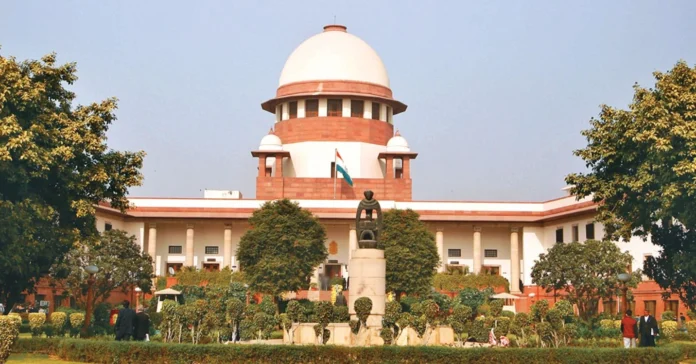The Supreme Court has granted six months’ interim bail to a builder facing a multitude of criminal cases, while simultaneously ordering the consolidation of 81 separate FIRs into one comprehensive case. The Court noted that the decision was essential to prevent duplication of proceedings and to safeguard the interests of home buyers caught in prolonged disputes.
The order was passed by a Bench comprising Justice J.B. Pardiwala and Justice R. Mahadevan, who observed that the criminal complaints all stemmed from the same chain of transactions and therefore ought to be dealt with collectively. The earliest FIR, registered on January 11, 2018, at Shastri Nagar Police Station in Patna, has been designated as the principal case. All other FIRs, past and future, will now be recorded as statements under Section 161 of the Code of Criminal Procedure, ensuring a streamlined process that avoids repetitive trials.
The Court emphasised that while interim relief has been granted, it comes with stringent safeguards. The builder must deposit ₹9.94 crore with the Court registry within the stipulated period. This amount, the judges clarified, is a partial deposit and not a full and final settlement of liabilities. In addition, he must furnish a security bond of ₹5 lakh with a solvent surety of equivalent value.
Further restrictions include the surrender of his passport within eight days, mandatory reporting to Shastri Nagar Police Station every fortnight, and a complete bar on transferring or mortgaging any property in his or his company’s name without prior judicial approval. The Court also made it clear that the Real Estate Regulatory Authority is free to enforce its decrees independently, and that the Enforcement Directorate is at liberty to continue its proceedings under existing law.
The Bench warned that failure to deposit the specified amount within the six-month window could lead to cancellation of bail. The case will now be reviewed on February 24, 2026, when the Court will assess compliance with its conditions and take a fresh view on the matter.
This judgment signals the judiciary’s intent to balance the liberty of accused developers with the pressing need to protect home buyers’ rights, offering a pragmatic framework for handling multiple complaints arising from the same transaction.


